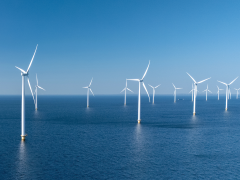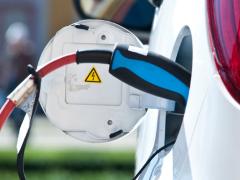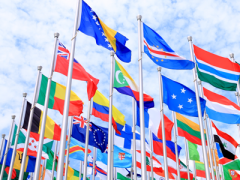Persistent inequality in economically optimal climate policies
Benefit-cost analyses of climate policies by integrated assessment models have generated conflicting assessments. Two critical issues affecting social welfare are regional heterogeneity and inequality. These have only partly been accounted for in existing frameworks. Here, we present a benefit-cost model with more than 50 regions, calibrated upon emissions and mitigation cost data from detailed-process IAMs, and featuring country-level economic damages. We compare countries’ self-interested and cooperative behaviour under a range of assumptions about socioeconomic development, climate impacts, and preferences over time and inequality.
Results indicate that without international cooperation, global temperature rises, though less than in commonly-used reference scenarios. Cooperation stabilizes temperature within the Paris goals (1.80∘C [1.53∘C–2.31∘C] in 2100).
Nevertheless, economic inequality persists: the ratio between top and bottom income deciles is 117% higher than without climate change impacts, even for economically optimal pathways.
Authors
Specifications
- Publication title
- Persistent inequality in economically optimal climate policies
- Publication date
- 8 June 2021
- Publication type
- Article
- Publication language
- English
- Magazine
- Nature Communications
- Issue
- volume 12, Article number: 3421 (2021)
- Product number
- 4677




